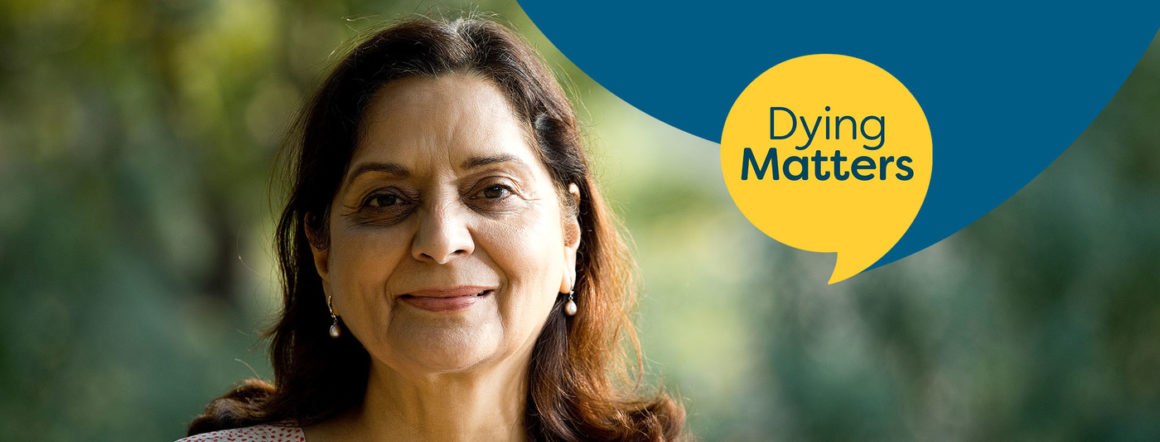Two weeks ago, we shared a Zoom panel discussion featuring four members of our expert clinical team: ‘A Martlets Conversation: answering your questions about death and dying’.
It followed national Dying Matters Week, when we asked people to submit questions they had for our panel about death and dying.
You can watch the full 45-minute discussion here for a wealth of insight from our team. But we’ve also picked out five key takeaways from the discussion.
1. It’s important to talk about dying matters even if it feels uncomfortable
Everyone needs to be able to talk about death and dying, not just medical professionals. The panel talked about how people at end-of-life don’t always share their feelings with doctors and nurses; sometimes it might be a member of our housekeeping or catering team they talk to. Along with this, family members and friends may be faced with difficult conversations about death. That is why it’s important that everyone can talk about death and dying and be comfortable doing so.
Guy Chetwynd-Appleton, a staff nurse on our inpatient unit, spoke about how we need to be honest about what death is. They didn’t ‘pass away’ or ‘pass on’, they died and it’s okay to say that. “Dying is part of life,” he added. “It doesn’t have to be awful — it can be planned.”
2. How to start a difficult conversation
Often people want to know how they can talk to friends and family who are living with a terminal illness. Jane Cato, our counselling and bereavement services manager gave some great advice:
“Start a conversation with ‘it’s good to see you’ rather than ‘are you okay'”, she advised,“as people won’t feel met by the latter.”
She also discussed the feelings of hopelessness some people have when they can’t help a loved one get better and how to manage that. Simply spending time with someone who is dying is great way to support them. Really listening to them and affirming that they are loved and their life meant something can be important.
3. Everyone’s experience is different
While everyone dies, not everyone dies or experiences the end of their life in the same way. The panel discussed the different approaches people may have to death and the process of dying.
Lisa Carelse, a clinical nurse specialist in our community team, spoke about the signs that may indicate someone is approaching the end of their life. For example, shortness of breath, changing attitudes to food and sleeping more.
4. People often die as they lived
While some people do change their attitudes and views towards the end of their lives, other do not. The panel mentioned that sometimes people can expect their relationships with a dying person to improve.
Lisa Carelse advised that you shouldn’t “feel bad if difficult relationships still persist.” However, Jane Cato said that it also happens that people can change, and people can forgive and repair relationships.
5. It is important to plan for a good death
As people approach death, there’s a lot to think about and plan for. As Guy Chetwynd-Appleton, “dying is a lot of work”. Whether that’s sorting out a Will or planning a funeral, it’s not just medical care that needs to be considered. That’s why Advance Care Planning is really important.
Dr Simone Ali explained this as “preparing for a point in the future on how you want your care to look.” You can read more about it in our blog too.
The panel also talked about how it’s important to be honest and clear in the planning process on both sides. Medical professionals, and families and loved ones, must work together and be honest about their hopes and expectations for a ‘good death’.
These are just five things we took from A Martlets Conversation, but there’s lots more brilliant insights in the full discussion. You can watch the full conversation by clicking on the link below.
Find out more
- Learn about the Dying Matters campaign
- Read Dr Simone Ali’s blog on Advance Care Planning
